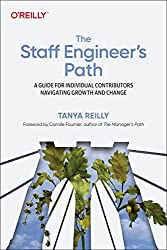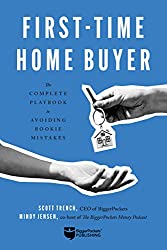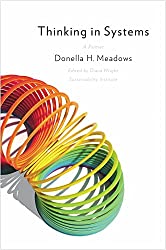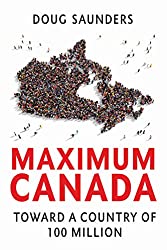Rating: 7.6/10. Book about the history of Ukraine from ancient times until 2021, when the book was written. Ukraine was always on the frontier between Europe and Asia, for most of his history, the area was known as “Rus” or “Little Russia”, but they rarely ever were able to form their own state, rather they…
Category: Topics

The Staff Engineer’s Path by Tanya Reilly
Rating: 8.3/10. The Staff Engineer’s Path: A Guide for Individual Contributors Navigating Growth and Change by Tanya Reilly Book about the staff engineer role, a position in many tech companies that is separate from software engineering manager and a parallel track. A staff engineer oversees the technical direction for a project, without directly managing reports….

One Day in the Life of Ivan Denisovich by Aleksandr Solzhenitsyn
Rating: 7.7/10. A short novel that describes life in a Soviet Gulag in the Arctic in the 1950s. The author himself spent several years in the Gulag; this is one of the first published books that revealed the inner details of the Gulag system, and controversially, it was allowed to be published in the Soviet…

First-Time Home Buyer by Scott Trench and Mindy Jensen
Rating: 7.9/10. First-Time Home Buyer: The Complete Playbook to Avoiding Rookie Mistakes by Scott Trench and Mindy Jensen Guide to buying real estate, with a focus towards first time home buyers and assumes you’re in the United States (although most of the advice applies to Canada too). The first thing to know is that your…

The Business of Being an Artist by Daniel Grant
Rating: 7.2/10. Book about the business side of art. Ideally, your art would be displayed in a gallery where people will buy it, but galleries themselves face intense economic pressures and they need to sell most of their art in order to break even. Therefore, most artists need to do a lot of thinking like…

Dance Music Manual by Rick Snoman
Rating: 7.7/10. Dance Music Manual: Tools, Toys, and Techniques by Rick Snoman A textbook about music production aimed at intermediate level producers. I don’t often listen to electronic dance music, but the tools and techniques in this genre often transfer to other genres like pop as well. Compared to other genres, dance music tends to…

Thinking in Systems by Donella H. Meadows
Rating: 7.4/10. Book about analyzing “systems”: basically, any collection of things that are interconnected and produce emergent properties. In many situations you will be led astray if you only look at individual events or pieces of the system, you have to analyze the system as a whole to understand its behavior. Examples of systems are:…

Learning Google AdWords and Google Analytics by Benjamin Mangold
Rating: 8.3/10. Textbook about the two tools in the Google marketing stack: Google AdWords and Google Analytics, with about half of the book devoted to each. The four types of marketing are: search, display, social and content. Despite popular belief, online ads are a huge market, making most of Google’s revenue, but requires some expertise…

Stanley Park’s Secret by Jean Barman
Rating: 7.7/10. Stanley Park’s Secret: The Forgotten Families of Whoi Whoi, Kanaka Ranch and Brockton Point by Jean Barman Book about the history of Stanley Park in Vancouver, specifically the people who lived there for several decades after the area was officially designated as a park. Today, Stanley Park is marketed as a pristine wilderness,…

Maximum Canada by Doug Saunders
Rating: 8.2/10. Maximum Canada: Toward a Country of 100 Million by Doug Saunders Book about the history of immigration in Canada. Today, Canada is recognized as one of the most multicultural countries in the world, but Canada has only been multicultural fairly recently, since the 1960s. In the 19th century, Canada was set up as…

The $12 Million Stuffed Shark by Don Thompson
Rating: 7.2/10. The $12 Million Stuffed Shark: The Curious Economics of Contemporary Art by Don Thompson Book by an economist about the contemporary art market: the book’s title refers to a piece of modern art by Damien Hirst consisting of a decomposing tiger shark floating in a vat of formaldehyde, sold for several million dollars….

Agricola and Germania by Tacitus
Rating: 7.8/10. Fairly short book containing two minor works by Tacitus, a Roman historian who lived in the first century AD. The two works, Agricola and Germania, were written around the same time but on two different topics. Agricola describes the career of the author’s father-in-law, Julius Agricola, a general who conquered Britain and served…
